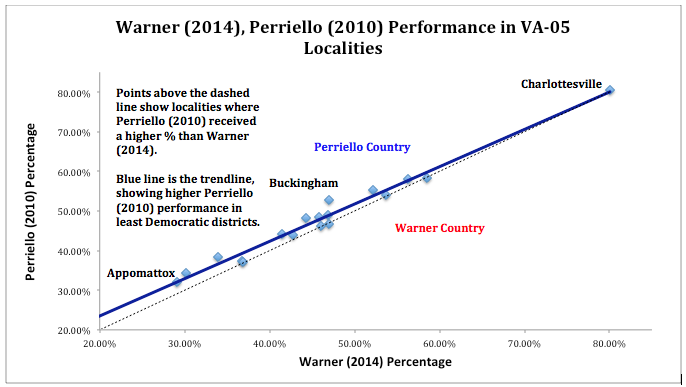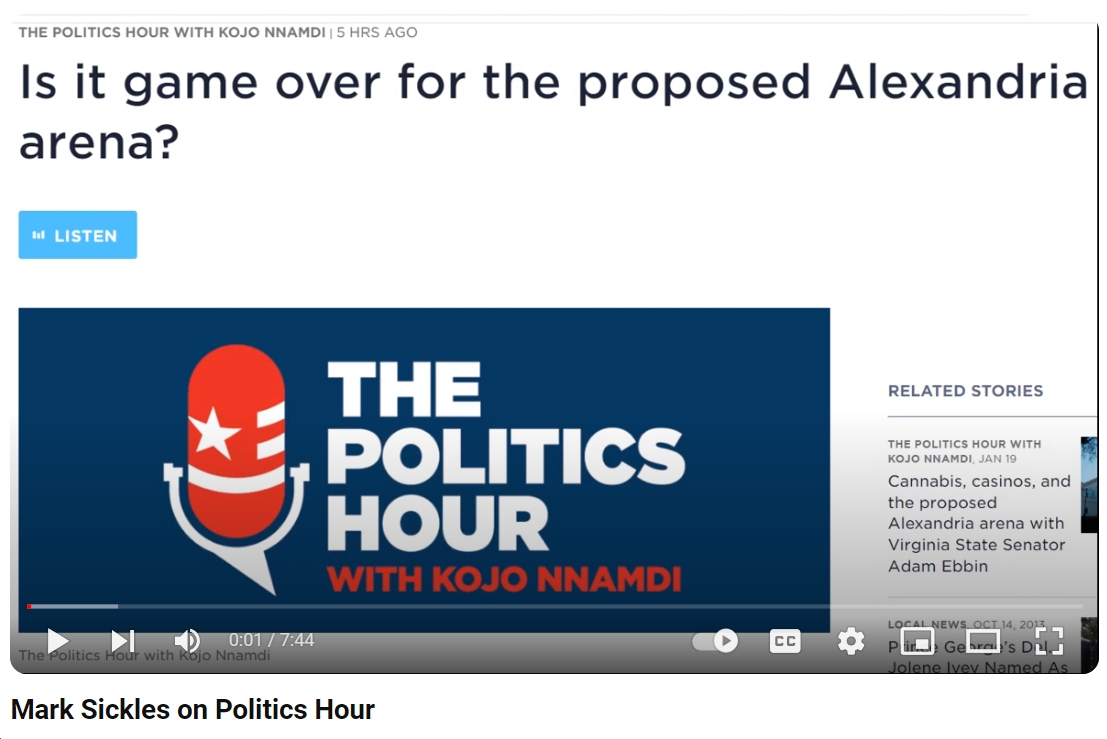( – promoted by lowkell)
 Yesterday I blew open the claim from the Warner campaign that they ran significantly ahead of Democratic performance in Southwest and Southside Virginia. But I had a thought on a more nuanced pro-Warner argument that I wanted to question today.
Yesterday I blew open the claim from the Warner campaign that they ran significantly ahead of Democratic performance in Southwest and Southside Virginia. But I had a thought on a more nuanced pro-Warner argument that I wanted to question today.
Putting aside the grand claims of Warner’s success in rural Virginia, suppose there’s an argument that with the older, more white electorate that by its very nature turns out in off-years Democrats have to campaign as more centrist, bipartisan political creations in order to hit roughly the same performance we see in presidential turnout years, even in rural localities. Trying to run as a proud Democrat and campaign on issues that mobilize our base risks alienating more voters than it turns out to the polls, a la Udall in Colorado.
While I can’t explain away what happened in Colorado, I can provide some counterpoint to the idea that the only way to sustain Democratic performance in an off-year is to run as a watered down centrist.
What if you compared Mark Warner’s 2014 performance with another Virginia Democrat who lost in a lower turnout off-year, Tom Perriello in 2010?
For this I only compared the localities that were entirely within Virginia’s 5th District prior to the 2010 redistricting, which also meant not including the split counties of Bedford, Henry, and Brunswick. I dropped the cities of Martinsville and Bedford (which no longer exists) because they were entirely contained in those split counties, these are a geographically cohesive sample.
I only looked at the two-party vote, ignoring the role of the two independent candidates in each election. In all but two localities (Danville and Halifax), Perriello received a higher percent of the vote than Warner. In some it was minor; their difference in the city of Charlottesville was half a percent. In others it was much larger, like almost 6% in Buckingham.
The result is that while both candidates lost the combined counties, Perriello received 48.9% of the vote and Warner only 46.9%. As noted, it’s not just explained by liberal areas like Charlottesville. Perriello ran better in several small rural counties like Buckingham, Greene, Appomattox, and Campbell.
The 2010 race featured higher turnout, on both sides, with 196,251 total votes, compared to 158,566 in 2014. Warner lost these counties by 9,806 votes; Perriello had a narrower gap at 4,467.
With a 17,000 vote margin, picking up just 5,000 can matter.
Because of the influence of turnout, Warner actually did better in a few counties when you look at the vote margin, not percentage. In Halifax, Franklin, and Pittsylvania, the Warner and Perriello percentages were within less than half a percent, but turnout was down from 2010. This meant that Warner actually closed the gap by over 1,600 votes in these counties compared to Perriello.
The Warner campaign would believe that is the price Democrats pay in midterm years. Hope that lower turnout and a more conservative campaign message prevents Republicans from running up their margin with the older, more white electorate.
But that’s not always the way the math works. Although Warner was half a point ahead of Perriello in Charlottesville, the total number of voters who came out was down by a quarter in 2014. Perriello gained almost 2,200 more votes out of Charlottesville than Warner because of the higher turnout. Yes, his unapologetic campaign may have turned out some Republicans, but it turned out even more Democrats.
And it works beyond just liberal Charlottesville and Albemarle. Around 4,500 votes in Charlottesville and Albemarle, but then around 1,700 more in the other rural northern counties in the district like Greene and Buckingham, hardly your typical people’s republic or liberal commune. Although small rural counties, the better turnout and performance picked up around 100 votes in Charlotte, Cumberland, and Prince Edward counties, each. Finally, in Danville where Warner ran just barely ahead of Perriello in percent the higher turnout translated into almost 600 votes.
Some pundits would have us believe that Democrats have to make a choice. Run as liberals and you get higher turnout and better performance in college towns and the big cities, but you alienate the rest of America and end up shooting yourself (and your campaign) in the foot. At least in this corner of Southside and Central Virginia that’s not the case. A strong, populist campaign worked not just in the college town, but in most of the small towns and rural counties. Even taking away Danville, Charlottesville, and Albemarle, Perriello did better than Warner in the remaining small, mostly rural counties.
Virginia is a more diverse, more urban state than this sample of counties. The math for a more proud Democratic campaign works here, and could work statewide.
[poll id=”
140
“]















